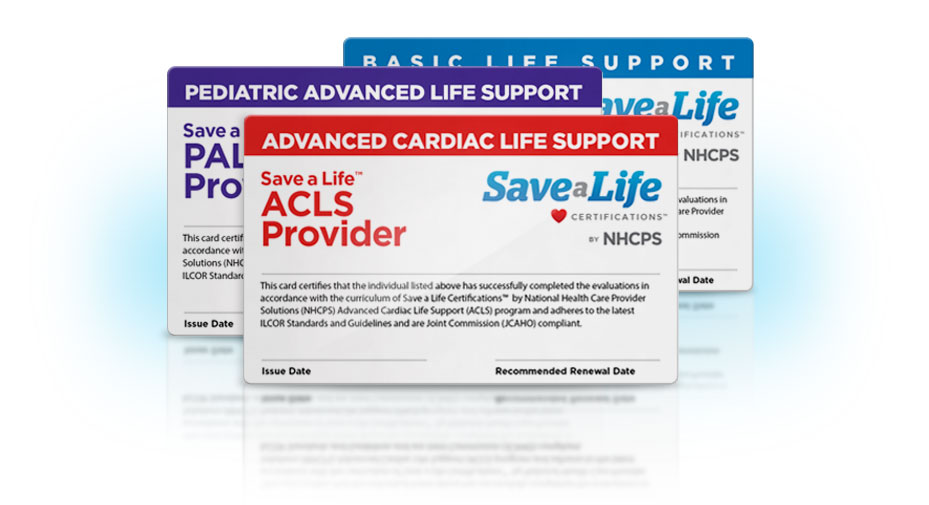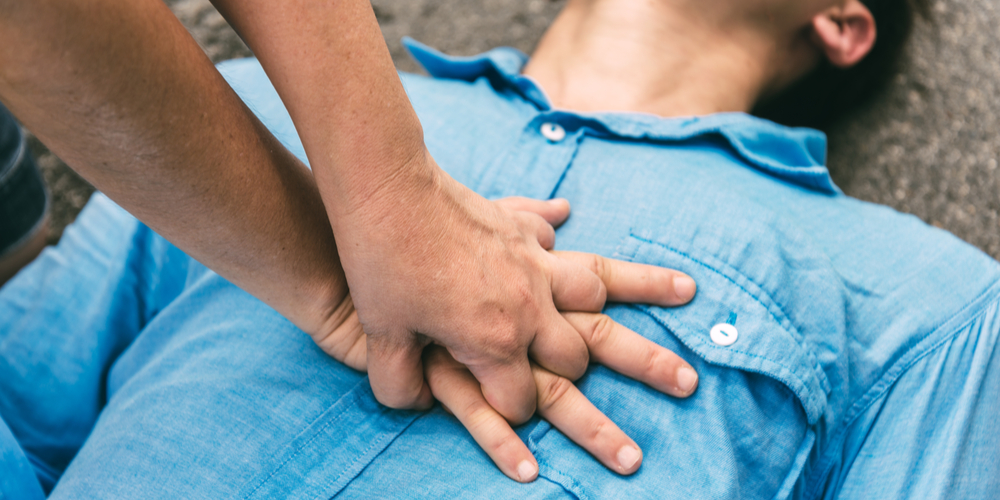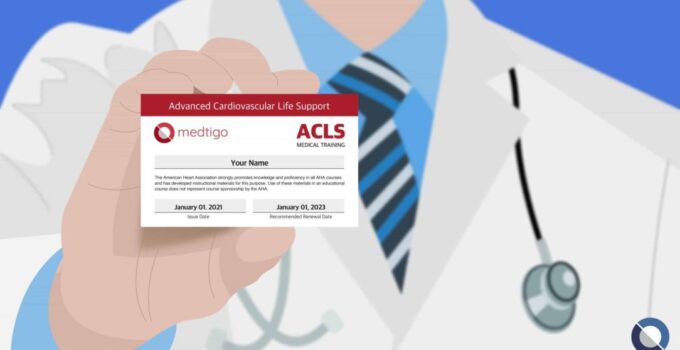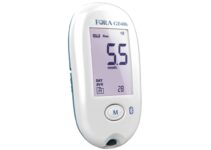In today’s healthcare environment, the last thing healthcare professionals need is to weed through misleading information when researching what ACLS (advanced cardiac life support) courses are legit and which are scams designed to take the money of hopeful students.
Health care practitioners are already familiar with continuous learning, and ACLS and PALS certification round out those qualifications. However, some institutions are particularly stringent in recognizing only the best online or hands-on educational institutions. What remains imperative is that more hospitals, health facilities, and medical institutions require their staff to acquire and maintain ACLS certification training. Knowledge is power in providing health solutions that will help to save lives.
Health Industry Parameters
Like all industries, the American Heart Association and health care institutions have embraced online learning as valuable for teaching courses and regular certification. However, locating approved ACLS certification programs is still a concern for healthcare professionals. The question persists: Which online ACLS certification is legit?
Online ACLS, PALS, & BLS Certifications

Source: nhcps.com
Anyone who desires to pursue a career in the emergency room, cardiac care unit, and other medical and pediatric-related areas requires ACLS certification. Choosing a qualified ACLS and PALS (pediatric advanced life support) online training provider results in a 97.2% industry recognition rate for your certification.
One way an online class can prove it is legitimate is to advertise who issues the ACLS certification. If the online courses issue certificates compliant with NBECC (National Board of Emergency Care Certification) , you can rest assured that your employer will most likely recognize your accreditation.
Be wary of programs that offer short-term refunds, an indicator that the course may not be legitimate. Look for programs that offer a 1-year refund, as this allows you to transition to other career opportunities within that time frame. You should be especially wary of courses that offer no refund at all as these are more likely to be scams than accredited certification programs.
ACLS, BLS, and PALS Industry Course Grid
These are the basic tenets of what an ACLS certification can offer, and what any legitimate study course should help you achieve:
Registration: A quality training facility assists their student clients through registration by navigating them through a secure portal and introductory information. Visit ACLSOnline to know more about PALS certification.
Learn: Using a time-tested method that has already certified millions of health care practitioners, students are provided with all necessary materials and case studies to apply the practice questions at their own pace. Students have access to both online and mailed supplementary materials. The course material includes real-life case studies.
Qualifying exam: Once a student feels confident, they apply their knowledge to the online course testing process. If a student isn’t successful on their first attempt, the exam automatically resets and provides them with valuable materials to help focus their study on the areas of concern.
Completion & Staying current: Online participants receive a completion card (NBECC), other valuable information, and helpful updates. A renewal message alerts healthcare professionals when they require recertification, as the medical field never remains stagnant.
What Aspects of Certifications Are and Aren’t Recognized by the AHA (American Heart Association)

Source: blog.zoom.us
While many quality online courses have become invaluable training resources for the healthcare industry, not all meet AHA standards. Your employer may have a list of accepted ACLS, PALS, and BLS certificate training classes preferences available for you to explore. It’s wise to consult those lists first to ensure your end qualifications meet their expectations.
Certain certification institutes may offer bargain-price ACLS study programs, but their certification process does not meet the parameters set out by AHA. Therefore, most health care organizations will not likely accept an accreditation from that program. Be aware of the short-term refund policy often accompanying these programs.
1-hour certification ACLS sites are becoming common on search platforms, but students should be wary. While some individuals may be able to maneuver an ACLS exam easily because they have the knowledge and experience, most won’t be able to complete a thorough exam in that timeframe.
ACLS certification is a serious business and needs attention. Fake institutions have telltale signs and fail to meet industry requirements. Once you’re ready for your clinical skill evaluations, ensure that you receive an instructor code that qualifies the signature required to receive full accreditation.
The Distinction Among Certifications
Heartsaver should never be confused with BLS, ACLS, and PALS certification. AHA and healthcare professionals won’t recognize it as a substitute. Don’t confuse it with the specific life-saving training that skilled, certified medical professionals receive. It’s a valuable tool for civilians only.
CPR (cardiopulmonary resuscitation) is a civilian version of BLS certification. While CPR certificates are a life-saving method for first on the scene, they’re not comparable for BLS, ACLS, or PALS training.
BLS is administered to patients in distress, and qualified personnel undertake and provide the life-saving applications of rescue breathing, chest compression, or automated external defibrillators (AEDs). Those who administer BLS hold BLS training certificate cards.
ACLS health practitioners are qualified through certification and may administer ACLS. They have acquired knowledge and training with life-saving tools by using electrocardiograms, intubation, and intravenous medications in addition to assessing and determining the root cause of the patient’s medical situation.
PALS is only performed by PALS-certified medical professionals who can determine medical crises in pediatric patients. These qualified healthcare practitioners are trained in the correct procedures for using electrocardiograms, intravenous medication, and intubation methods applicable during medical duress in pediatric patients.
Ask Your Employer’s Preference
If your employer requires an AHA (American Heart Association) Certificate, you must register with AHA and complete the verbal and practical skill segment through their association or approved partners. In that case, online ACLS or online PALS certification will not suffice. You must pass an additional hands-on practical assessment to receive an AHA ACLS certificate.
Qualified providers consider people’s best interests in real medical crises and provide their certificate recipients the knowledge and skillset to make a life-saving difference. Students, even those with lapsed certificates, benefit from updated procedures and crucial information from these programs. An AHA-approved card identifies those individuals able to provide these health-saving methods.
ACLS and PALS Curriculum

Source: faem.org.uk
Qualifying ACLS courses provide students with intimate knowledge of how to make confident patient examinations. Students should feel confident in their knowledge of:
- Ventilation procedure for airway and oxygenation emergency
- (Primary and secondary) ventricular fibrillation
- Asystole and pauses
- Resuscitation situations
- Bradycardia and AV blocks
- Stable and unstable tachycardias
- Pulseless electrical activity
- Acute coronary syndromes and stroke
- Medical futility, advanced directives, ethics
Students enrolled in PALS will also learn how to cope and provide pediatric solutions for:
- Respiratory distress and failure
- Cardiac arrest situations
- Tachycardia (stable and unstable)
- Post-resuscitation management
- Shock
These procedures are sanctioned methods approved by AHA, NBECC, and ILCOR. Over 97% of national hospitals and medical care facilities agree with an online certification that covers knowledge of these concepts.
Reputable online courses are accredited for ten continuing education credits (ACLS/PALS) from the NBECC. (BLS equals two credits). Students can typically complete the course and the certification at their leisure. A quality certification program provides students with access to quick online course materials and mails course-specific training manuals for ACLS and PALS upon registration.
Vital Clinical Skill Testing

Source: fortis.edu
Once a student completes the online education material outlined in the program, application for clinical skills verification process can begin. After the exam and the student receives the form, a qualified person from their local hospital must verify their clinical skills=. Once the form is received by the complying educational facility and processed, a provider card will be issued to the successful candidates.
FAQs
Medical professionals interested in pursuing ACLS or PALS certification often have very specific questions regarding enrollment.
How long is an ACLS certificate or recertification good for?
An online ACLS certificate is valid for two years.
What if I fail the online exam?
If you don’t pass on your first try, the program examination resets and allows students further time to complete the test. A quality program will address the shortcomings from the failed attempt. You may retake the test instantly upon completion if desired.
What if my employer doesn’t accept my online ACLS certificate?
A top-notch online institution will provide refunds for those whose employer fails to recognize the program’s credentials.
What does an ACLS or PALS certificate card look like?
Successful recipients of qualified programs will receive cards to identify the experienced provider’s name, an issue date, a recommended renewal date, the American Heart Association logo, and a provider card number.
How long do I have to wait to get my provider card?
Typically, cards are mailed to the successful applicant within a week of completing the course and providing the signed skills form.
Now That You Know How to Identify a Qualified Program…
It’s time to improve your life-saving skills. Qualified ACLS and PALS certificate programs are upfront about what they offer and back up their service with a money-back guarantee. A provider like AMRI (American Medical Resource Institute) utilizes the expert collaboration of industry professionals to develop the best certification programs.
Confidence in choosing the right institution is important, and as stated earlier, knowledge is power. Once you’ve received confirmation from your employer about their specific requirements, choose the institution educating medical professionals since 1983.




